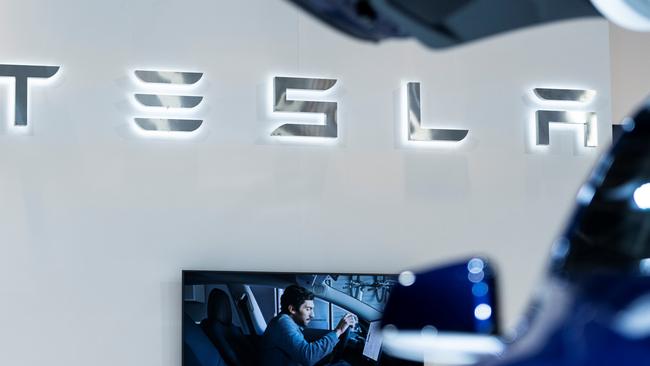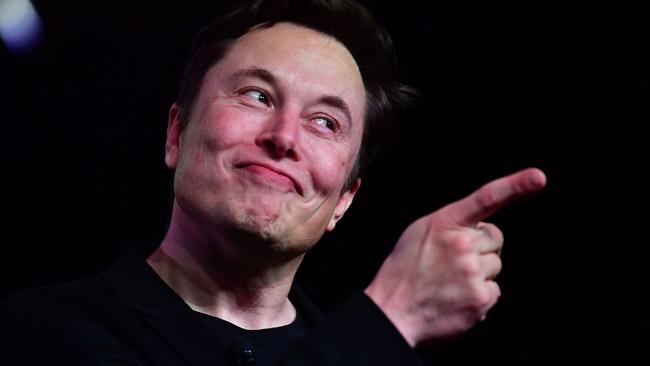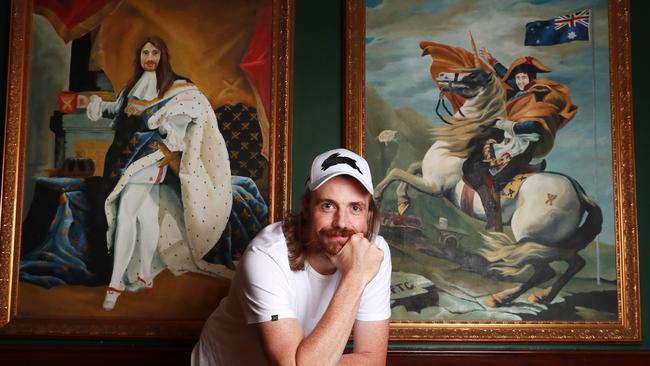Mike Cannon-Brookes backed Zoox settles with Tesla after admitting trade secrets theft
Employees admit stealing confidential Tesla documents when they joined the Cannon-Brookes backed company.

A self-driving car start-up backed by Atlassian co-CEO Mike Cannon-Brookes has settled an intellectual property stand-off with car giant Tesla, with Zoox admitting some of its new employees stole confidential Tesla documents when they came across to the company.
The high-stakes battle, which pitted Mr Cannon-Brookes against fellow technology billionaire and Tesla co-founder and CEO Elon Musk, came as the red-hot self-driving car industry gathers pace and companies scramble to stay one step ahead of each other.
Zoox, of which Australian tech billionaire Mr Cannon-Brookes is a director and has invested $US100m ($159m) of his own money, admitted on Thursday that several of its employees had taken secret documents from Tesla to their new jobs at Zoox.

Tesla lawyers filed a lawsuit in March last year in the Northern California Federal District Court against four former employees and Zoox, alleging the employees stole proprietary information and trade secrets for developing warehousing, logistics and inventory control operations. The suit was settled this week for an undisclosed sum.
“Zoox acknowledges that certain of its new hires from Tesla were in possession of Tesla documents pertaining to shipping, receiving, and warehouse procedures when they joined Zoox’s logistics team,” a statement from start-up said.
Zoox said it “regrets the actions of those employees,” and that it will also “conduct enhanced confidentiality training to ensure that all Zoox employees are aware of and respect their confidentiality obligations”.
The settlement also required Zoox to undertake an audit to ensure none of its employees had retained or were using Tesla’s confidential information.
Mr Cannon-Brookes declined to comment.
Several companies are racing to develop the technology required to make cars drive on their own and lawsuits against former employees are common as firms strive to keep proprietary information in-house.
Google’s self-driving arm Waymo settled a similar dispute with ridesharing giant Uber in 2018, after Uber employees were accused of stealing Google’s self-driving technology. Last month former Google executive Anthony Levandowski, who later joined Uber, pleaded guilty to stealing trade secrets and faces 30 months in prison.
According to documents seen by The Australian, the Zoox employees allegedly took information relating to Tesla's proprietary “WARP” system, which handled manufacturing, warehousing, inventory, distribution, and transportation of its products.
The documents said one warehouse supervisor allegedly emailed four confidential documents from his company account to his personal address with the subject “Good Stuff”, while another sent documents in an email with the text “you sly dog you …”.

Tesla’s statement of claim alleged one defendant “attached a modified version of a Tesla proprietary document, freshly-emblazoned with the Zoox logo, yet still bearing the layout, design, and other vestiges of the Tesla version – showing, without doubt, that the defendants are actively using the Tesla information they stole.”
Zoox, which was founded in 2014 and is headquartered in California, last year named veteran Intel executive Aicha Evans its new CEO, replacing ousted Australian founder Tim Kentley-Klay who was removed from the post in August 2018.
Mr Cannon-Brookes told The Australian at the time that removing Mr Kentley-Klay was a tough call.
“Tim did an amazing job for four years,” he said. “He’s done a great job, and worked thoroughly to get the company to where it is. The board made a decision to go a different way with a CEO. Obviously, I’m the newest board member there. And those board level decisions are always hard.”
Mr Cannon-Brookes put in $US100m of his own money into Zoox in a fundraising round through his Grok Ventures vehicle, adding to a string of start-ups he holds investments in.
In December he said he expects Zoox's “robot cars” to be on the road within two years.
At the time of his ousting, Mr Kentley-Klay said in a statement that the board abruptly fired him and “chose a path of fear, optimising for a little money in hand at the expense of profound progress for the universe”.
Mr Kentley-Klay, an Australian designer, co-founded the company in 2014 with Jesse Levinson, who had made a name for himself in self-driving car development at Stanford University.
Zoox has built up a war chest of investment worth about $US1bn, but last week said it would lay off about 100 workers — 10 per cent of its workforce — as the effects of COVID-19 weigh on its revenue.
Additional reporting: Reuters



To join the conversation, please log in. Don't have an account? Register
Join the conversation, you are commenting as Logout